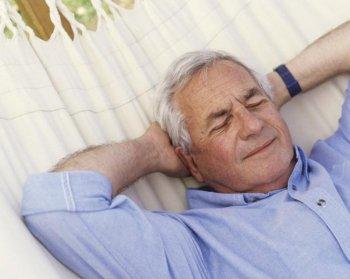Researchers said this week that they have probably found a way to cure sleep, so insomnia sufferers may not need to take pills anymore.
Dr. Daniel Buysse of University of Pittsburgh’s School of Medicine and his colleagues found that “two in-person sessions and two phone calls” seem to have alleviated insomnia in older adults.
Between 15 and 35 percent of older adults in the United States suffer from insomnia, which is characterized by having trouble falling asleep, staying asleep, or frequently getting non-restorative sleep.
Studies have usually associated a lack of sleep among older adults with fatigue, lack of concentration, and mood disturbances.
In the study, which was published online on Monday, Jan. 24, and will be published in May in the Archives of Internal Medicine, the researchers said that hypnotic agents are prescribed at too high a rate to older adults, and behavioral treatments could be another solution.
The study examined 79 older adults with an average age of 72. Thirty-nine received the behavioral treatment, which consisted of behavioral instruction issued by a nurse in four sessions: two by phone and two in person. The other 40 people in the survey were given printed information about insomnia and sleep habits.
In four weeks, those who got the brief behavioral treatment showed a greater response to the treatment than the other group (67 percent to 25 percent) or they were no longer classified as having insomnia (55 percent to 13 percent). In every 2.4 patients treated, one would respond favorably or no longer have insomnia, the researchers concluded.
“Although brief behavioral treatment for insomnia shares many features with other behavioral insomnia treatments, some particular features make it an especially attractive option,” the authors said in a press release.
The behavioral treatment method is efficient for “entry-level” treatment of insomnia, the authors said.
“Future studies should examine the feasibility of educating nurses and other health professionals in brief behavioral treatment for insomnia and the effectiveness of brief behavioral treatment for insomnia delivered in actual practice settings on symptom-based, functional, and health care economic outcomes,” they added.
Dr. Daniel Buysse of University of Pittsburgh’s School of Medicine and his colleagues found that “two in-person sessions and two phone calls” seem to have alleviated insomnia in older adults.
Between 15 and 35 percent of older adults in the United States suffer from insomnia, which is characterized by having trouble falling asleep, staying asleep, or frequently getting non-restorative sleep.
Studies have usually associated a lack of sleep among older adults with fatigue, lack of concentration, and mood disturbances.
In the study, which was published online on Monday, Jan. 24, and will be published in May in the Archives of Internal Medicine, the researchers said that hypnotic agents are prescribed at too high a rate to older adults, and behavioral treatments could be another solution.
The study examined 79 older adults with an average age of 72. Thirty-nine received the behavioral treatment, which consisted of behavioral instruction issued by a nurse in four sessions: two by phone and two in person. The other 40 people in the survey were given printed information about insomnia and sleep habits.
In four weeks, those who got the brief behavioral treatment showed a greater response to the treatment than the other group (67 percent to 25 percent) or they were no longer classified as having insomnia (55 percent to 13 percent). In every 2.4 patients treated, one would respond favorably or no longer have insomnia, the researchers concluded.
“Although brief behavioral treatment for insomnia shares many features with other behavioral insomnia treatments, some particular features make it an especially attractive option,” the authors said in a press release.
The behavioral treatment method is efficient for “entry-level” treatment of insomnia, the authors said.
“Future studies should examine the feasibility of educating nurses and other health professionals in brief behavioral treatment for insomnia and the effectiveness of brief behavioral treatment for insomnia delivered in actual practice settings on symptom-based, functional, and health care economic outcomes,” they added.







